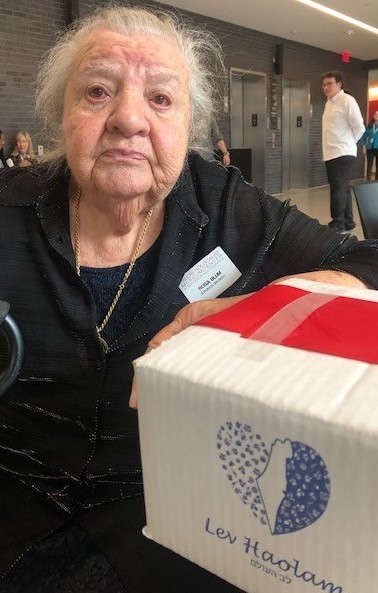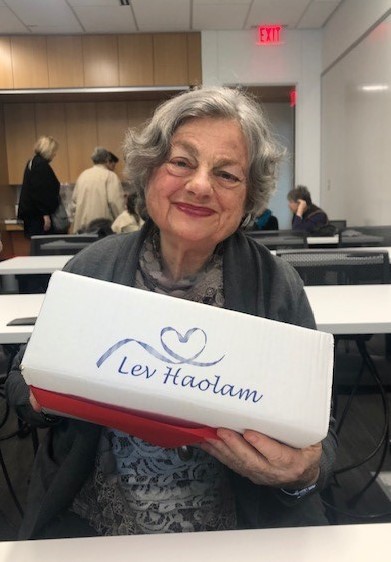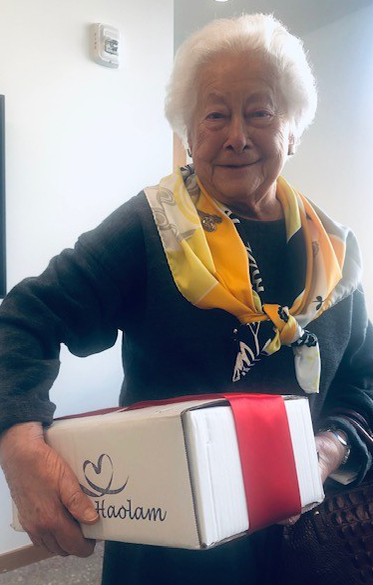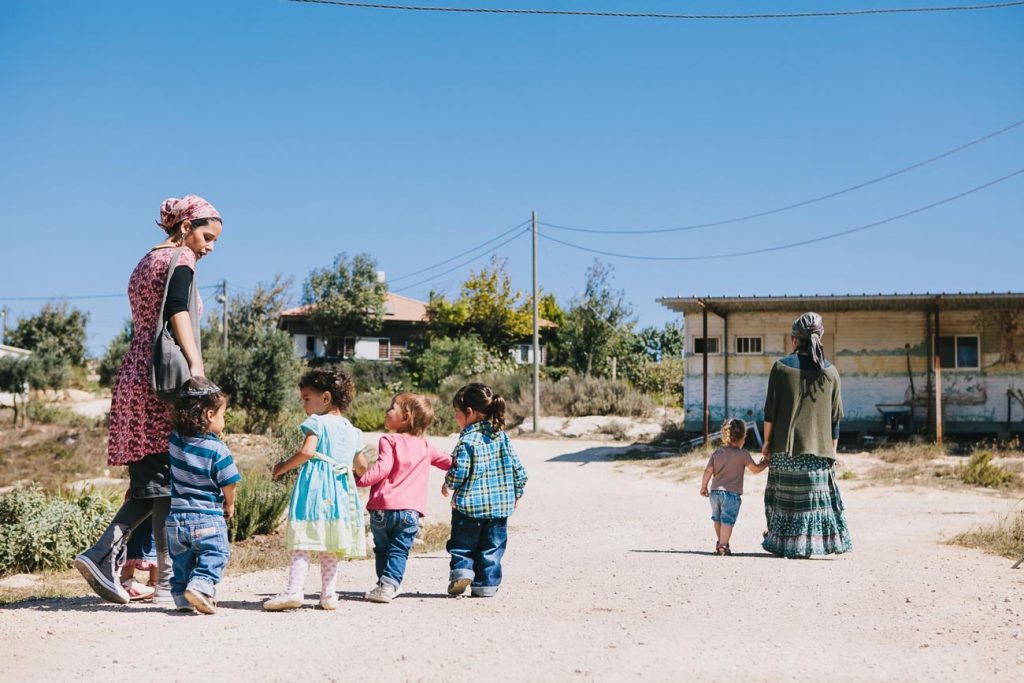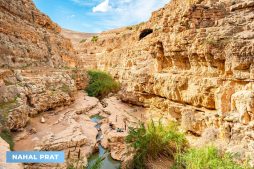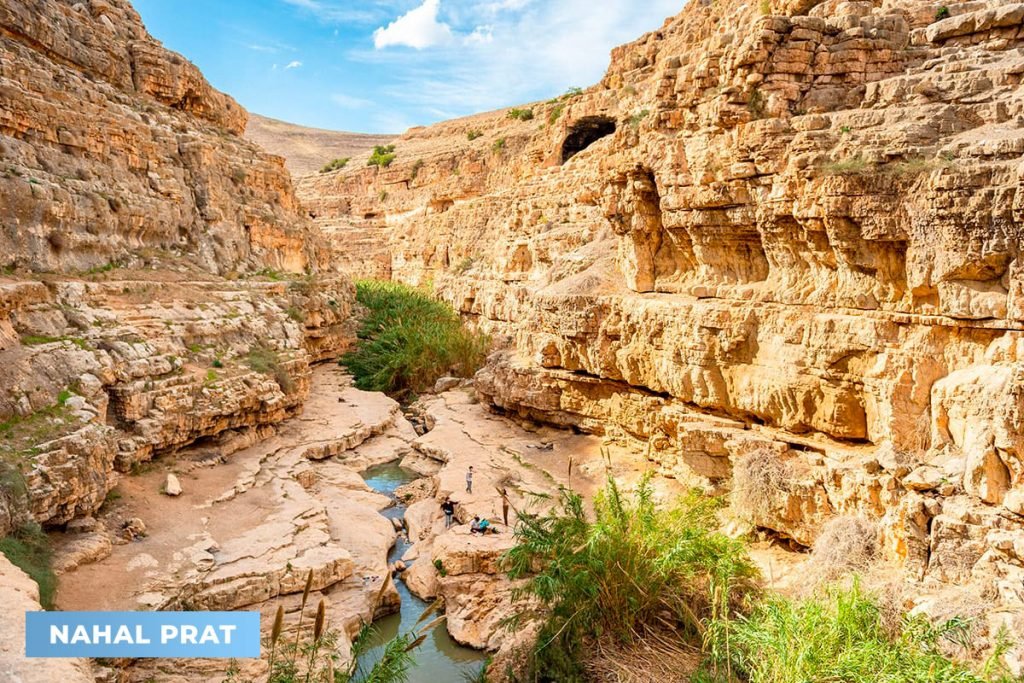Archives
The hypocrisy of BDS exposed: Happy to work with Israel when it suits them
May 3, 2020
For years, we’ve had to suffer the BDS propaganda machine spouting lies about the evils of Israel and the Zionist regime.
They have preached about the boycott of Israeli products, artists and academics no matter what the cost. Even when thousands of Palestinians have lost their jobs as Israeli companies have been forced out of Judea and Samaria, BDS claims that it’s a small price to pay for a greater good: the downfall of the tyrannical Jewish State.
Funnily enough, the ordinary Palestinian people are very population that BDS claims to support, but they’re actually suffering more than nearly anyone else from the actions of BDS.
Now, in a telling interview given by one of the founders of BDS, the organization’s true colours have been revealed.

During a recent live video on the BDS Arabic Facebook page, BDS founder Omar Barghouti said that supporters of his movement would be free to take advantage of an Israeli COVID-19 vaccine in the event that the Jewish State succeeded in developing one first.
In a blustering attempt to justify the obvious hypocrisy of this statement, he explained that co-operation with Israel was permitted if it saved millions of lives.
“Up until now, we have not been in a situation where we need Israel urgently and no one else can save us but Israel. If that will happen, saving lives is more important than anything else,” he said.
What about the livelihoods of innocent Israelis and Palestinians that have been ripped to shreds by the actions of BDS? What about the potential life-saving drugs and medical technologies that Israel could have developed if her academics and scientists had not been boycotted and undermined? The contradictions are endless.
What is plain is simple is that the BDS movement is duplicitous and morally bankrupt. If it believes so deeply in the evils of Zionism and is committed to bringing down the Jewish State at any cost, it can’t suddenly choose to be friends when Israel happens to have something it wants. That’s hypocrisy in anyone’s books.
What about you? Are you convinced by Barghouti’s explanation that BDS supporters can still be committed to the destruction of Israel while benefiting from its medical advances? Or do you think that’s a paradox?
Standing with our pioneers in the face of COVID-19
April 7, 2020
Many of you have been in touch to ask how the producers and small businesses that Lev Haolam supports are coping during this pandemic. Thank you so much for your concern and all the words of encouragement.
The truth is that these are devastating times for the whole world, and Israel is no exception.
Israel is now in its third week of national lockdown. The only stores permitted to open are supermarkets and pharmacies. Many businesses across the country have already collapsed and the unemployment rate is soaring.
The artisans and producers that Lev Haolam supports are no longer able to sell their goods on the domestic market. It’s terrible to hear how some of these Jewish pioneers who have spent years building up small businesses against all odds are now teetering on the closure.
The uncertainty about what the future holds makes it even harder to plan. No one knows how long the lockdown will last, or what the situation will be afterwards. In the meantime, there are still bills to pay.
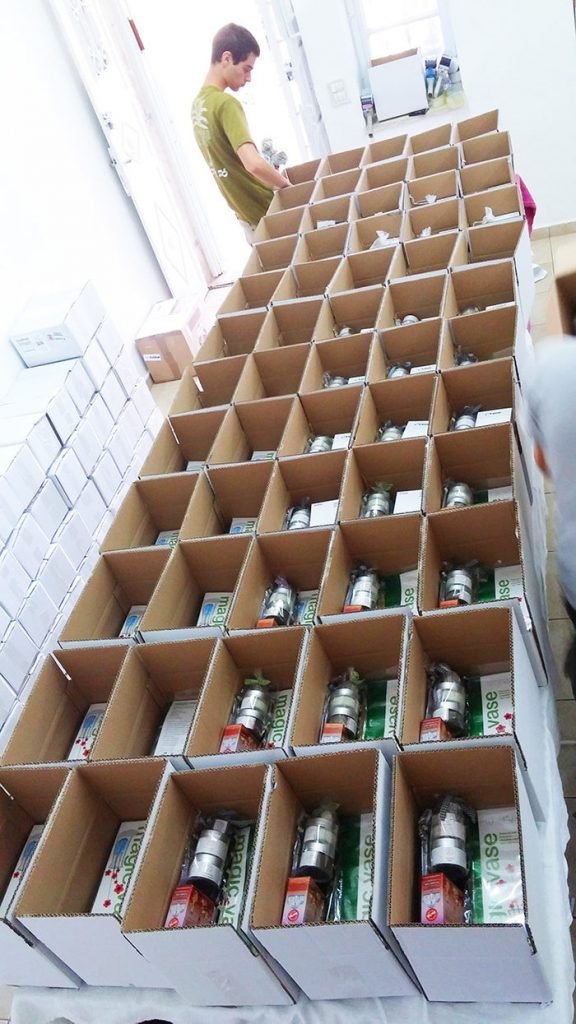
International orders are one of the only sources of income available to many of our suppliers. Even then, there are few companies still working and shipping Israeli products overseas. At Lev Haolam, we have committed to stand with our suppliers and continue to send monthly packages all over the world.We know how crucial it is to our network of small businesses in Judea and Samaria that we don’t stop our operations at this time, as many other companies have. So, rather than pausing trade, we put our heads together to figure out how we could change the way we work to be able to keep the Ministry of Health regulations without shutting up shop. By working remotely and moving more of our processes online, we’re able to continue selecting the highest quality Israeli products each month and shipping them to our worldwide family of subscribers.
Your support means more than ever during these challenging times. By continuing to receive your Lev Haolam package during this world crisis, you are quite simply providing a lifeline to our suppliers. There are no words to express the gratitude and relief they feel when they receive our orders.
So, we want to take a moment to say thank you. Thank you for choosing to stand with Israel at this time. Thank you for supporting Jewish pioneers in the heartland of Judea and Samaria. Thank you for helping keep small family businesses selling unique Israeli products operational during these terrible days.
If you don’t yet receive Lev Haolam monthly packages and would like to help Israeli artisans and producers at this time, you can click here to subscribe. We’d love to have you on board.
Israel Delivers a Dynamic Response to the Covid-19 Pandemic
March 30, 2020
The Novel Coronavirus Moves Across the World with Lightning Speed
The Novel Coronavirus emerged slowly and lent a feeling of unease that has snowballed over the past month. We have all watched in horror as stock markets have plummeted, country after country has fallen into the grip of this highly contagious virus, overtaxing medical infrastructure and most painfully causing the loss of life.
Governments the world over are responding with stricter, more draconian measures, and people find themselves feeling afraid, lonely, and helpless.
The Israeli people have responded to this global health crisis in a uniquely Jewish way. Jewish tradition and religious law have always taught us to respect the sanctity of human life. We are all created in God’s image and according to that, all life, both that of the gentile and the Jew are precious and warrant heroic efforts to be protected.
Israel has responded to the crisis by leading the way toward a cure and supplying much needed equipment to those in need.

Vaccine
Israel is leading the way in the urgent effort to find a human vaccine against the Covid 19 Coronavirus. The scientists at the Galilee Research Institute (MIGAL) report that they are potentially on the brink of delivering a vaccine.They have already created a vaccine that is effective in treating Infectious Bronchitis Virus which is a strain of coronavirus, however different from Covid-19. The MIGAL scientists are developing ways to adapt the existing vaccine to be effective in the fight against Covid-19.
MIGAL’s CEO David Zigdon said that “given the urgent global need for a human Coronavirus vaccine, we are doing everything we can to accelerate development. Our goal is to produce the vaccine during the next 8-10 weeks, and to achieve safety approval in 90 days.”
Testing for Covid 19
Israeli company BATM has developed a rapid response Covid-19 diagnostic test for use by medical facilities with current shipments bound for Europe with a priority for Italy.
BATM and Novamed Lmt, are in joint development of an at-home Covid-19 diagnostic test which should be ready within 3 months. The test will deliver results within minutes.
Masks
Not all masks are effective in preventing the transmission of Covid-19. Two Israeli companies are creating masks that impressively protect against the coronavirus.
Argaman Technology uses a system of embedding copper particles inside cotton fibers which are able to block germs and bacteria. The company recently sold their entire stock of over one million masks to Hong Kong and are rapidly restocking in order to provide additional masks to other countries in need.
Sonovia has developed masks that guard against the flu, and it’s hoped that further testing will show them effective against Covid-19 as well. “Israel has technologies that can support controlling this epidemic,” says Liat Goldhammer-Steinberg, CTO, Sonovia.
Prayer
NO Israeli response would be complete without prayer. In keeping with Jewish tradition rabbis from across Israel have called for prayer. In early February, on a cold, wet, winter night hundreds of people came together for a prayer service at our most sacred place, The Western Wall in the Old City of Jerusalem. Together with visitors from around the world a prayer went up to ask for healing and to show solidarity with all those suffering around the world.
Blessing Israel
As the pandemic continues to touch us all, we are reminded how interconnected and dependent on one another we are. As we see the technologies that Israeli companies are developing to help with a cure we understand more clearly how those who bless Israel are blessed.
Now more than ever we need to support one another and to strengthen our communities. How are you responding to the crisis in your community and family?
We all look toward a future that reveals a cure to this illness. The Torah promises us that it is, after all, written that before the illness, God created the cure.
Why Jews Wear Masks on Purim?
March 7, 2020
On the one hand, Purim, that commemorates a narrow escape of Persian Jews from the death sentence 2,500 years ago, fits perfectly into the regular scheme of a Jewish holiday: ‘They tried to kill us, we survived, let’s eat.’
On the other hand, there is some sharp contrast between Purim and other Jewish holidays, like Pessach or Chanukkah. The latter are about Jews escaping death, too, but there were miracles happening there: The division of the Red Sea, or the light of the Menorah that lasted eight days instead of one.
In the story of Purim we do not see God acting (he is not mentioned once in the whole Book of Esther that is read on Purim). The events that led to the lifesaving victory of the Jews seem perfectly natural. Esther’s uncle Mordechai just happens to be in the right place to learn about the plot of Haman, the king’s minister, to kill all the Jews, by persuading the king that they are dangerous for the state (typical anti-Semitic argument!); Haman just happens to erect the gallows on which he was eventually hanged…
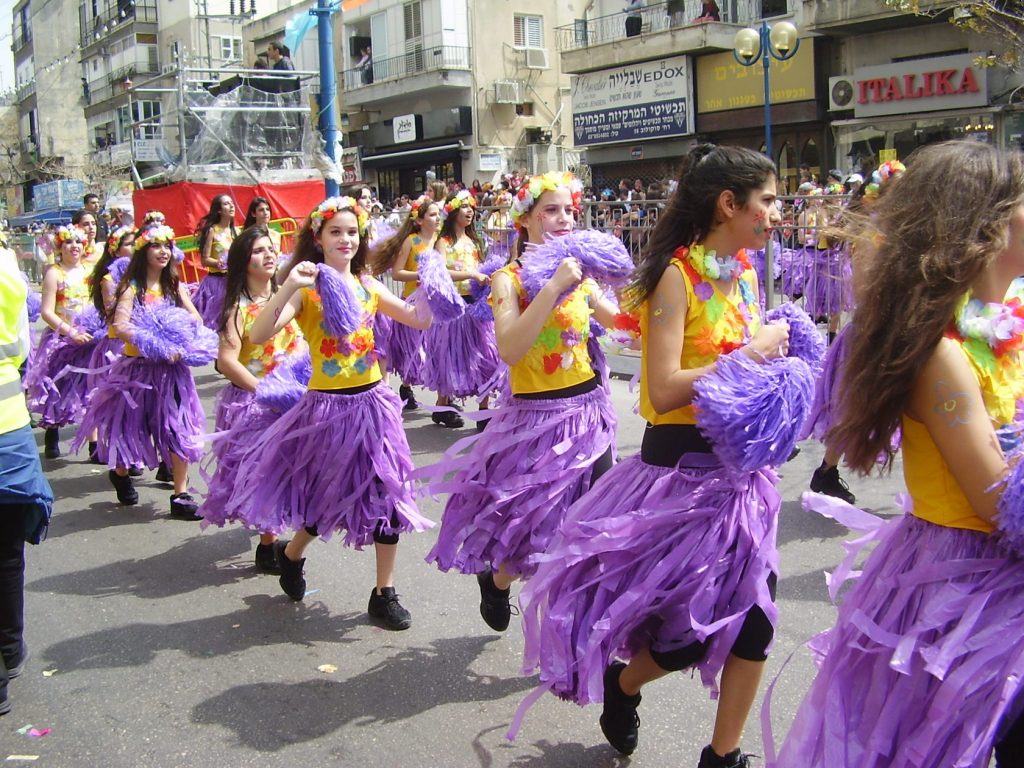
In Hebrew, the name Esther means ‘hidden’. Unlike Pessach or Channukkah, Purim is a story of hidden miracles. That is why one of Purim traditions is a masquerade. This week Israeli streets will get full of Batmen, Cinderellas, animation characters, people dressed like movie or pop stars, or as the characters of the Purim story itself. Men will wear women dresses and visa versa. The Hebrew verb used to describe putting on the clothes of some character has the meaning of ‘looking for’. Dressing up for the masquerade and wearing masks on Purim is an allusion to God hiding himself in the Purim story.Purim is also a story of everything turning out to be the opposite of what it seemed to be: A victim into a winner, a second most important man in the state into a criminal… This spirit is preserved in Purim traditions. In Israel, children (and teachers!) go to school in their pajamas on the days before Purim; a day of fast before the holiday is followed by loud parties; people send presents to each other; and the overall Purim atmosphere is pure joy.
Another thing the Jews are commanded to do on Purim is to read the Book of Esther. Why at all this totally secular piece of text called Book of Esther, where God is not mentioned once, is included into the Tanakh, the collection of texts considered sacred in Judaism? Because Jewish sages knew who was acting from behind the curtains in the story of Purim.
How these events from 2,500 years ago can be relevant to us today? Maybe, in the way that they illustrate that even in the place and time in history seemingly devoid of the Divine presence, we can hope He is there – hiding but present. Even if this place is your own life. Go look.
March 3, 2020

Michal Tawil
Michal came to Judea and Samaria with her husband Raphael in 1993. They lived in Efrat for eight years and for the last nine years they have been residents in Alon Shvut.Alon Shvut
A town belonging to the Gush Etzion regional council. It was established on the 20th of Sivan, 5738 (1978), adjacent to “Lone Oak,” a historic oak tree, which became a symbol of the Gush after its fall in the War of Independence. Today, Alon Shvut numbers well over 700 families and is one of the largest communities in Gush Etzion.
Carrot Muffins Recipe
By Michal TawilIngredients:
- 3 cups of flour
- 1 t. baking powder
- 1 t. baking soda
- 1/5 t. cinnamon
- 1/2 t. baharat
- 1/2ct. peeled, grated, squeezed ginger
- 1 packet of vanilla sugar (or 1t. vanilla essence)
- 3 grated carrots
- 1/2 cup olive oil
- 2 eggs
- 1 cup of water
Preparation:
1. Mix the dry ingredients in a bowl, then add the vanilla, ginger, and carrots.
2. Slowly mix in the wet ingredients (oil, eggs, and water) until a soft and even consistency is formed.
3. Transfer the mixture into muffin tins (silicone molds are highly recommended).
4. Bake at 180C/350F for 20 min.
*These muffins can be prepared from any fruit you may have at home: pears, apples, peaches, blackberries, dates, and even from pumpkin and zucchini.
Why Giving is Taking
February 28, 2020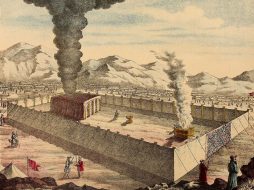
This week’s portion of the Torah deals with God’s detailed instructions to Mozes on how to build the Tabernacle – a portable sanctuary where the Almighty could dwell while the Israelites were travelling in the desert after they left Egypt. The chapter opens with His commandment to all of the Israelites to contribute materials needed for the building of the Tabernacle. The phrasing of the commandment, however, is weird: It is said “take for Me a contribution”, not “give Me a contribution”.
Why “take” instead of “give”?
It is known that wording in the Torah is never arbitrary; every letter, not just every word, is meaningful (Jewish mysticism teaches that God created the world while playing with the letters of the Torah. So why this choice of words? Is it some Freudian slip? Or does the phrasing imply that when we give to Him, we actually take, get something for ourselves?

Later in the Torah we hear God commanding to all of the Israelites give certain (really small) amount of silver to the building of the Tabernacle. There, He orders taxation – contribution to a common cause that should be paid by everyone. As opposed to it, in the opening phrase of the chapter He stresses that contribution of the materials should be voluntary and only from the people “whose heart wants it”.Let us ask ourselves a question: Why at all donations are needed? The Almighty, who needs help of His creatures to build Himself a home, – is not the whole idea kind of weird?
The meaning of the Hebrew word “contribution”, used in this chapter, is “elevation”. The idea is clear: When we contribute to a holy cause, we elevate – both the part of the material world that we give and our own soul. Maybe that is what God really wants from us: Not wood, silver, or linen, but an elevating act. He wants us to be partners in creation. By asking us to help Him, He gives us a chance to leave the physical realm and join Him into the Holy.
However, you need “to want with your heart” to give this contribution. What distinguishes an elevating act of donation from a merely physical act of transfer of goods or money is the intention – the intention to become the Almighty’s partner.
But how exactly “giving” is “taking”?
One of the ancient Jewish sources (the Midrash Vayikra Rabbah 30:13) takes note of this strange phraseology and comments, “by donating towards the Tabernacle it’s as if you are taking Me!”
In the Proverbs (19:17) a similar idea is expressed in almost businesslike terms: “One who gives graciously to the poor becomes God’s lender”. We kind of strike a deal with God: by giving money to charity, we lend Him money, helping Him take care of the needed. So, one of the ways to explain how “giving” is “taking” is this: God will pay off His debt to you, and pay off generously.
Jewish sages also explain, that since everything in this world comes from God, you need to give Him His part in order to be able to use – to take – yours. Now, when the contribution is done, you can take the rest.
One of the forms of the Hebrew word “give” in the Torah – “ונתנו” – is a palindrome, it reads the same backwards and forwards. Giving is a sort of action that contains the opposite – receiving – in it.
Lev Haolam packages deliberately damaged during shipping: an update
February 25, 2020
We recently shared the story of Lev Haolam packages being tampered with during their transit to customers in the US. It was clear from the photos and reports we received from around 100 different subscribers that the damage was significant and must have been due to either extreme negligence or deliberate sabotage, possibly motivated by BDS.
We now want to give you an update on the situation.
It’s important to reiterate just how disappointed we were that this situation arose in the first place. We have always been extremely vigilant to ensure the safe arrival of all our packages, and have taken great care to choose the most secure and reputable shipping companies with tracked delivery. So, we are shocked that this type of event could have happened.
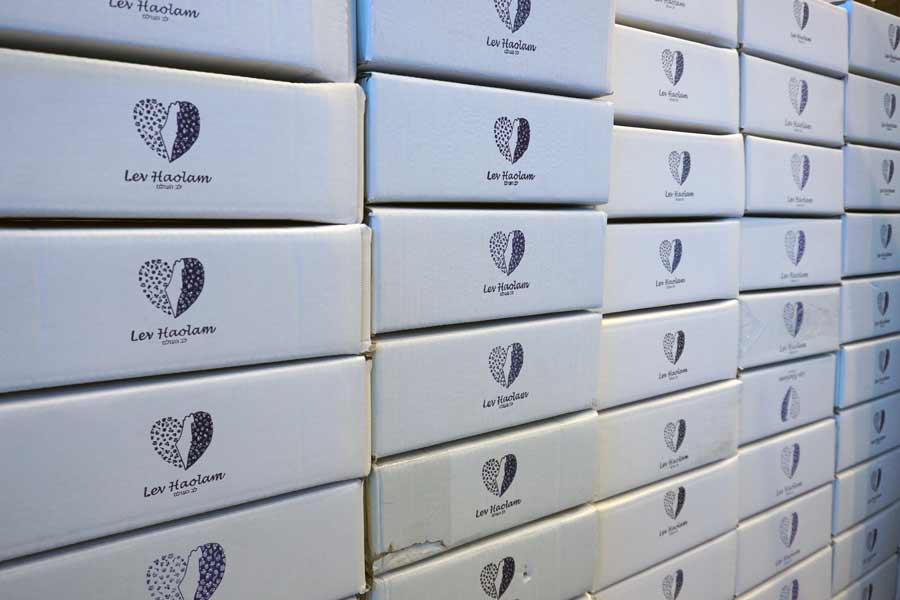
Now, in the light of these circumstances, we have added extra levels of control and safeguarding to the shipping process. We are confident that these acts of negligence or sabotage will not be able to happen again, and we want to reassure all of our faithful customers that you will continue to receive your monthly goods intact.However, we are still committed to finding out exactly what happened to the Lev Haolam packages that were defaced, and for this reason, we are carrying out our own inquiries.
After speaking to the Israeli Postal Service, we are convinced that that the damage could not have occurred in Israel or the packages would have been returned to our warehouse and not loaded on the plane.
We have managed to track the approximate location where the packages were probably harmed – the International Service Center (ISC) in New York. However, despite numerous attempts, we have not been able to make contact with the relevant department at USPS to help us with our inquiry. There has not been any response on the telephone when we have called, and we have received unsatisfactory responses to our emails.
We are determined to get clear answers from the USPS and to make it known that if there is a BDS motivation behind the damage, it will not be tolerated. We believe it is part of our role to stand in the gap for Israel, and to act on behalf of other Israeli producers who may face similar problems with overseas shipments.
Can you help? If you have contacts in the USPS or New York ISC and can help us get the answers we need, we would be very grateful if you would get in touch with us.
Worldwide Lev Haloam community brings hope to Holocaust survivors
February 24, 2020
One of the most rewarding aspects of our work at Lev Haolam is the sense of partnership with so many amazing friends and supporters across the world. We know that we are on a joint mission to bring a message of hope and truth, and to stand with Israel against the lies of BDS. We simply couldn’t do what we do without you.
An amazing and deeply moving set of events that happened in recent weeks reminded us again of this special worldwide partnership.
Manuela Neuhaus — a faithful, long-term supporter of Lev Haolam in Belgium who has been receiving packages for a number of years — recently started experiencing problems receiving our goods. Her last three packages were returned to Israel, which she suspects may be the result of BDS influences in her country.

